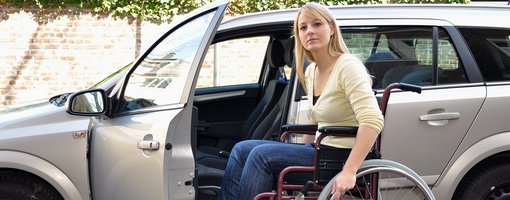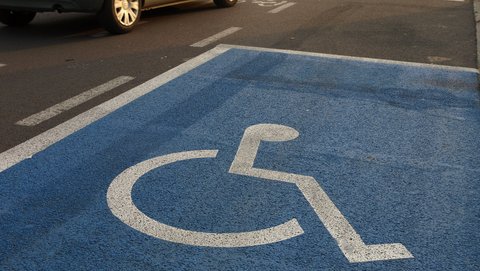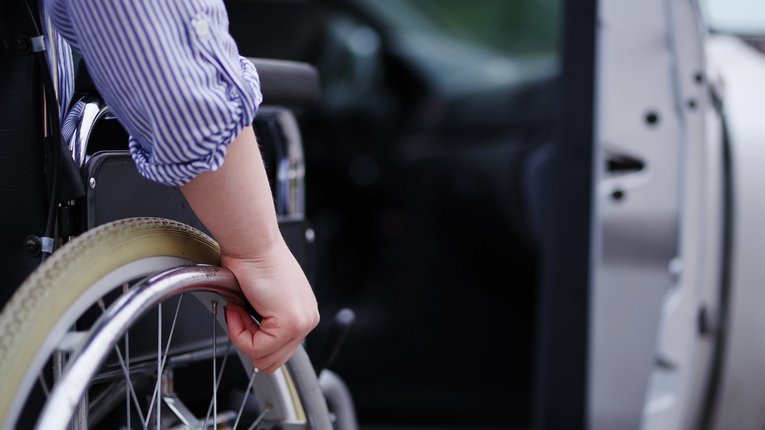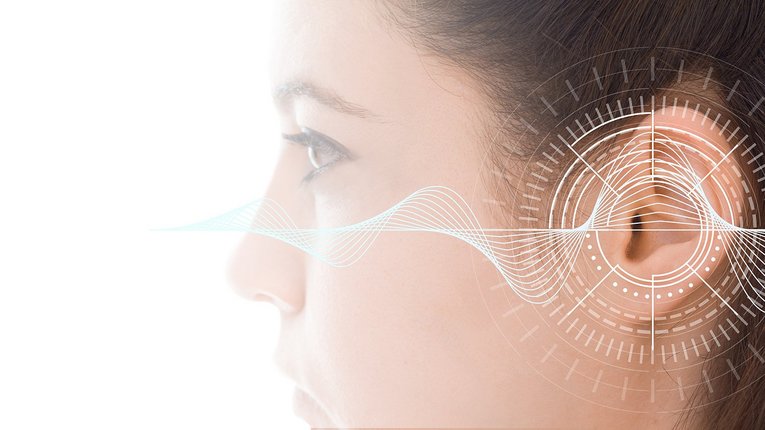The guide to disability driving licences
That's what you have to consider with a handicap!
You suffer from physical or mental impairments and are not sure whether you can even get your driver's license? In this guide you will find information on how to obtain a driving licence if you have a disability. Information on specific disabilities (e.g. deafness, learning disabilities, etc.) can also be found on our website.

If you suffer from a disability, this does not necessarily mean that you are not allowed to drive as a driver. People with disabilities are also allowed to complete driving licence training under certain conditions. Depending on the type of disability, in addition to the various medical tests, psychological examinations and a driving test may also have to be carried out in advance. If the results of these tests are positive, you will receive a road safety certificate. This certificate is used to decide whether changes must be made to the vehicle in order to make the vehicle possible despite the handicap.
Driving licence training for the disabled:
1. The appropriate driving school
For a successful and handicapped accessible education it is important to register at a driving school which is specialized in this field. These driving schools have, on the one hand, the correspondingly equipped or converted vehicles and, on the other hand, driving instructors who are familiar with the care of people with disabilities. Start searching for your driving school now!
2. The application procedure
People with disabilities must apply for a disability driving licence before registering with a driving school. This is possible either at the responsible district office or at the city administration. The competent authority shall then determine whether a medical opinion, technical modifications to the vehicle and a driving test are necessary. All this is needed to obtain a road safety certificate, which can then be used to register with an appropriate driving school.
3. Road safety certificate
It is regarded as proof that the vehicle owner can be mobile despite being disabled as a normal road user and is issued by the responsible specialist (orthopaedist / neurologist) or psychologist. Depending on the type of disability, a driving test may have to be carried out at the responsible TÜV.
4. Medical examination for the disabled driver's license
A responsible physician examines above all the visual and movement ability. For him it is important to recognize whether a person is able to drive a vehicle safely despite the restrictions (even with possible modifications). Depending on how these examinations are carried out, the doctor gives his consent to the road safety certificate.
5. Psychological examination for the disabled driver's license (MPU)
In case of severe restrictions, a so-called medical-psychological examination (MPU) is necessary in addition to the medical examination. Here, cognitive (mental) performance is tested above all. In addition to the ability to perceive things around oneself, the ability to orient oneself, attention, concentration, resilience and the ability to react are examined.
6. Technical expertise
Depending on the type of handicap, it is clarified here which changes to the vehicle or technical aids are necessary in order to be able to drive the vehicle safely despite restrictions. After that a driving test is usually arranged.
7. Driving test for driving ability
In addition to the medical and psychological examination, a driving test is also mandatory, depending on the type of disability. The aim is to determine whether it is at all possible to drive a vehicle despite restrictions and which changes have to be made to the vehicle. This can be completed e.g. at the TÜV.
Choose your topic and inform yourself!

Find your handicapped accessible driving school
Do you suffer from physical or mental impairments and still want to learn to drive? No problem, because you can directly find driving schools in your area that offer handicapped accessible driving training in our search.




